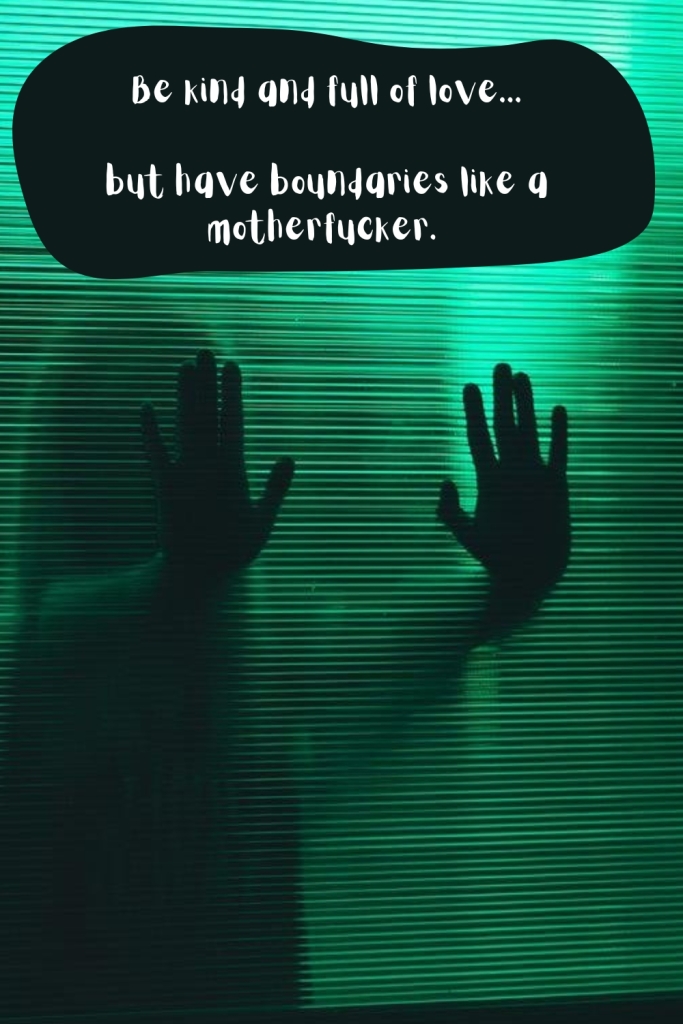When it comes to friendship there are actually two tandem qualities that I value most: loyalty and show-upedness (that’s right, I’m calling “show-upedness” a word, deal with it); but, I’ve had to temper my expectations of these qualities over time.
I Didn’t Learn It Right
I grew up in a military household; so, loyalty was a quality that you were just expected to have, along with an understanding of the things you were loyal to — duty, honor, country, God, and family (in that order). A military brat often has little else, especially one that moves around as often as I did. Your family — and the other military families surrounding you — become the only things you can cling to. Friendships must be made quickly and they’re left behind just as fast.
Over the course of my childhood I attended ten different K-12 schools across half a dozen states. By the time I settled into adulthood with my husband and put down roots, I knew how to make friends easily; but, keeping and maintaining them over long periods of time was an alien endeavor.
I opened up too easily, gave trust too willingly, and couldn’t understand why other people didn’t have the same dedication to showing up as I did. I got taken advantage of a lot and started to grow resentful of humans in general.
It wasn’t until I entered therapy, and started doing serious 12-step work, that I realized I’d grown up in a household that had seriously dysfunctional boundaries — and my expectations of others to be “open” with me, and to “show up” when needed, were unrealistic. I had to relearn everything I knew about relationships, and it wasn’t easy; but, I got better at it… one day at a time.
The hardest part of creating “healthy” friendships was recognizing and letting go of the folks who were not good for me: leaving the leavers and keeping the keepers. As my husband is fond of saying, “You’re drawn to chaos and broken people, Babe. It’s just how you’re wired.”
He’s not wrong. I’m more comfortable in the midst of chaos than I am floating in a sea of serenity. “Broken” humans are more interesting to me than pristine ones because they have a story to tell (and I’m broken myself). These aren’t bad qualities. They’re just ones I have to be aware of because they sometimes lead me into situations where I’m forming less of a friendship and more of a bond with someone who’s looking for a savior.
Sometimes Loyalty Must End
A few months ago I had to sever a long-term relationship with a close friend — someone I considered a mentor — in AA. We’ll call her “T.”
I met T four years ago through a mutual friend. I was looking for kindred (i.e. agnostic) spirits within the program and he introduced us at a local meeting. T was nearly seventy then but spunky as all hell. She was an Army veteran with decades of sobriety and a house full of cats. T also surrounded herself with strong younger women in the program.
It took us a while to form a bond; but, once we did, we were virtually inseparable. T was always a bit of a gossip — something she knew I didn’t endorse (and I spoke to her about it often) — but I never shared anything she said to me. I also never considered the fact that she might be sharing her bits of hearsay with other people in the program.
We had a small family within our local Anonymous community that consisted of T, me, and a few other women. Several months ago, another one of the ladies and I started to grow closer and it became glaringly obvious that T didn’t like it one bit.
All of a sudden there was a great deal of squabbling between T and this other friend (who had previously been close) and T started badmouthing her and her wife to me when they weren’t in our presence. I expressed concern over this and told T that she needed to stop being so negative all the time; but, that only seemed to escalate the drama.
T told me that she believed our friend was stealing from the Alano Club. She also informed me that this lady had cats in her apartment — unbeknownst to her landlord — and that she was thinking about making an anonymous report to the complex about it. Worried that things were spiraling out of control, I went to our friend and confronted her with these accusations. She admitted to the cats (and reported them to her landlord herself) and categorically denied stealing from the club (where she volunteered) — and I believed her because I’d seen T make up malicious rumors about people before.
Together, we approached the management at the club and informed them about what was going on; and then, we tried to talk to T.
T refused to take our calls and wouldn’t answer the door at her home. She started texting awful, belligerent things to the both of us… and later, to our friend’s wife. T also made dozens of phone calls to mutual friends in the program and spread false rumors about both of us. (Thankfully, we both have solid reputations and people came to us about them.) Finally, she made a call to my employer and informed them that I was an addict with a history of self-harm (which, they cannot terminate you for — especially when you’ve been in recovery for years).
In the end, we made a mutual decision to end all communication with her and T, sadly, has not returned to AA.
In retrospect, if I had paid closer attention to T’s actions in the beginning of our friendship I might have seen this coming.

Show-Up Anyway You Can
A few weeks ago, I received a phone call from a beloved professor about a good friend of mine. She had been absent from classes — with no explanation — and he had not been able to reach her. Knowing we were close, and nearing the end of the semester, he was hoping I might be able to get in touch with her or have some insight on the situation.
“M” (as we’ll call her) has always been a phenomenal procrastinator and tends to wig out at the end of each semester; so, at first, I wasn’t all that concerned about it. I told the professor that I would do my best to get in contact with her and started my campaign.
My emails, texts and calls all went unanswered. For a time this didn’t bother me; but, as the end of the semester drew nearer, I started to worry. I sent communications more often and marked them as more urgent, all to no avail.
Then, a few days into final exams, I received a phone call from an unknown number. It was the husband of my friend. He explained that he had returned early from a trip abroad — because he panicked when he could not get in touch with his wife — and had found M unconscious in the bathtub with shallow cuts on both her wrists. She was in the ICU at a local hospital being treated for an overdose.
I expressed my sorrow, gave him the name of the best mental hospital in town and told him to insist that she be taken there for her mandatory 72-hour hold. I also volunteered to drive to the hospital should he need support, but he declined.
I called M’s professor and explained the situation. I asked if it were possible to get “incomplete” grades put in place for her on an emergency basis so that she might be able to finish her courses once she was able. He said he would do his best to accommodate the request and that he would honor my wishes to state that it was a “medical emergency.” Two days later, it was done.
M didn’t wake from her unconscious state for several days and I spent many hours on the phone with her husband. I explained the reasons for everything he was going through — the social workers, the mandatory 72-hour hold that would be put in place — and shared that my husband and I had been through the same thing and were here for him.
I was ecstatic when I finally received a text from M. She was grateful for what I had done at the university and scared about being transferred to a mental hospital. I reassured her that she was going to the best one in town and told her that if she did what they asked she should be out in 72-hours.
M has now been there for several weeks. She’s refusing to take medication. She’s noncompliant with their personal hygiene protocols. Sometimes she refuses to eat.
She calls me and screams about the loss of personal liberty, accuses me of being a conspirator (with her husband) who is trying to keep her locked up, and sometimes makes no sense at all. The woman on the other end of the line is not someone I recognize, but she is someone I love. Every time she calls I tell her that she just needs to do as the doctors ask. I reassure her that her husband loves her and wants her to come home. (He and I still talk and he does want her home.) I explain that I will be here for her in whatever capacity I can be. I always say, “I love you, Lady.”
I have faith that she will find her way back from the madness.
This is the only way I can show up for her right now.
Redefining the Terms
To this day, I’m still not great with boundaries; but, I’m better than I used to be.
I’ve learned that loyalty doesn’t mean blind obedience, nor always prioritizing someone else’s needs above your own.
I know now that sometimes the best thing you can do for a friend is to step away, or speak the hard truths, because always showing up can lead to enabling.
Relationships are hard. You have to work at them, no matter what kind of relationships they are… and the road must always run both ways.

Interaction is Awesome! Please Leave Your Thoughts…